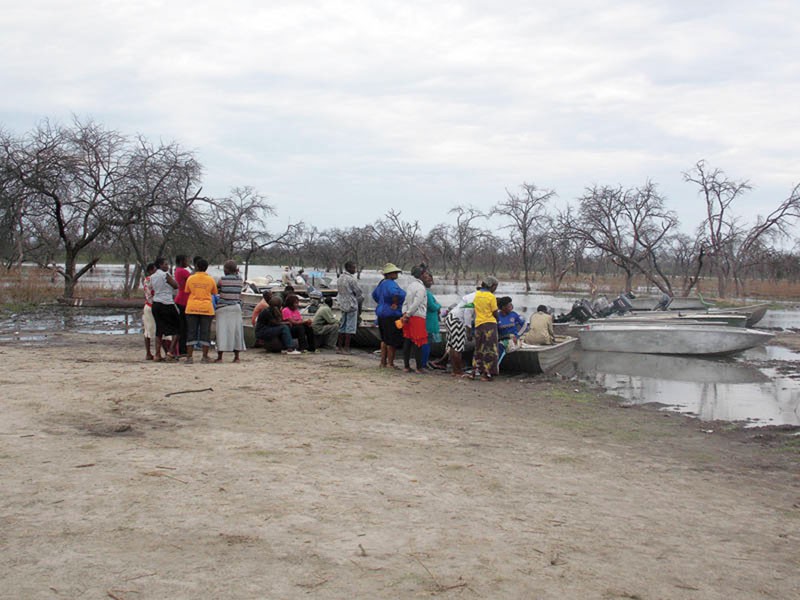Disaster in Ngamiland
Boniface Keakabetse | Wednesday November 25, 2015 18:00


The situation is reportedly compounded by the drying lake as the impoverished cattle get stuck to death while trying to drink from the lake.
In addition, the overpopulation of cattle in Ngamiland, which has 500,000 cattle against a carrying capacity of 250,000 is weighing heavily on grazing pastures in communal areas. A veterinary official in Maun, Dr Kennedy Ndlovu, said while 66 deaths have been recorded, there is under reporting of the mortalities by farmers and hundreds may have already died. Ndlovu said a lot of cattle are starving and getting stuck in the mud of the dying lake after drinking the water.
“These cattle have been seriously malnourished and the grazing pastures in the area have been depleted by massive cattle population,” he said. The overstocking of cattle in the district is seriously affecting grazing pastures in the communal areas where a lot of small farmers are based. Many poor farmers are now at the mercy of the drought as they cannot afford stockfeeds to complement the failing natural pastures.
Sehitwa/Kareng councillor, Maitiro Segosebe, said the drought would impoverish farmers in his area who are already feeling the pinch of the Foot and Mouth Disease (FMD). Segosebe called on government to help the farmers with drought relief programmes.
Meanwhile, the North West District Council last week dispatched a team of councillors to the lake to assess the extent of the drought devastation. Team leader and Khwai/Mababe councillor, Kebareeditse Ntsogotho, said the group had found a serious problem at the lake.
“The drought situation is worsened by the recent appearance of elephants at the lake. Elephants mud baths in the lake have become vicious mud traps for cattle.
“If the wildlife department does not drive the elephants away, farmers in the area may soon resort to shooting them,” he said.
Meanwhile, Ndlovu said FMD vaccinations of cattle at the lake will stop due to their severe malnourishment.
“Cattle are too thin to be vaccinated and the cessation of the vaccines will be a drawback to our efforts to contain FMD in Ngamiland,” he said.
“We will resume vaccinating in the area after the drought situation improves. We are also continuing with vaccinations in other areas not adversely affected by the drought.”
